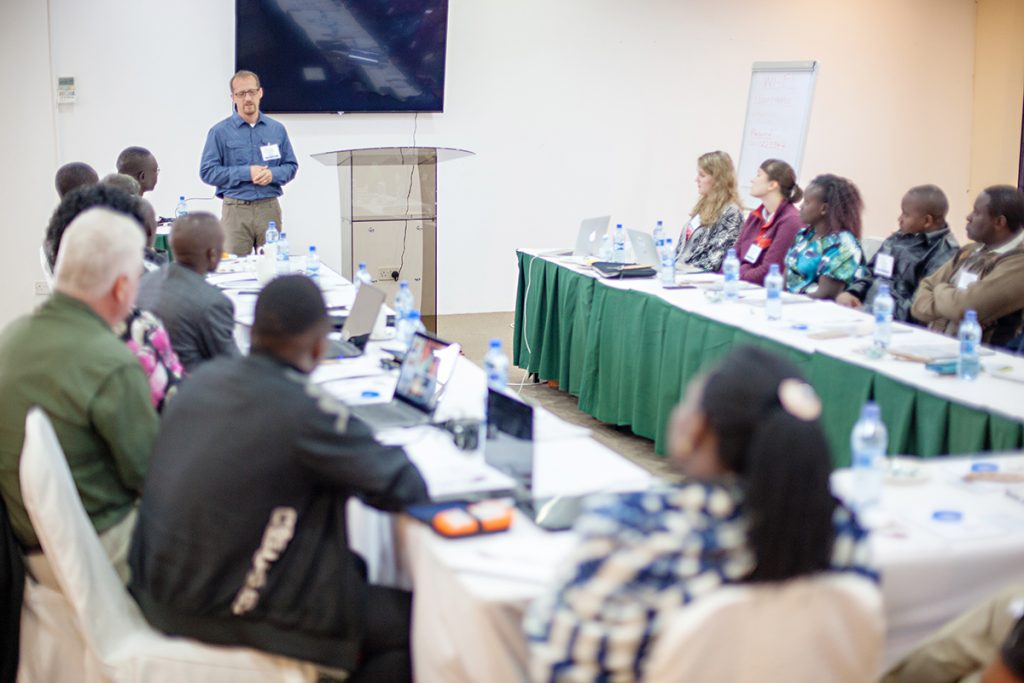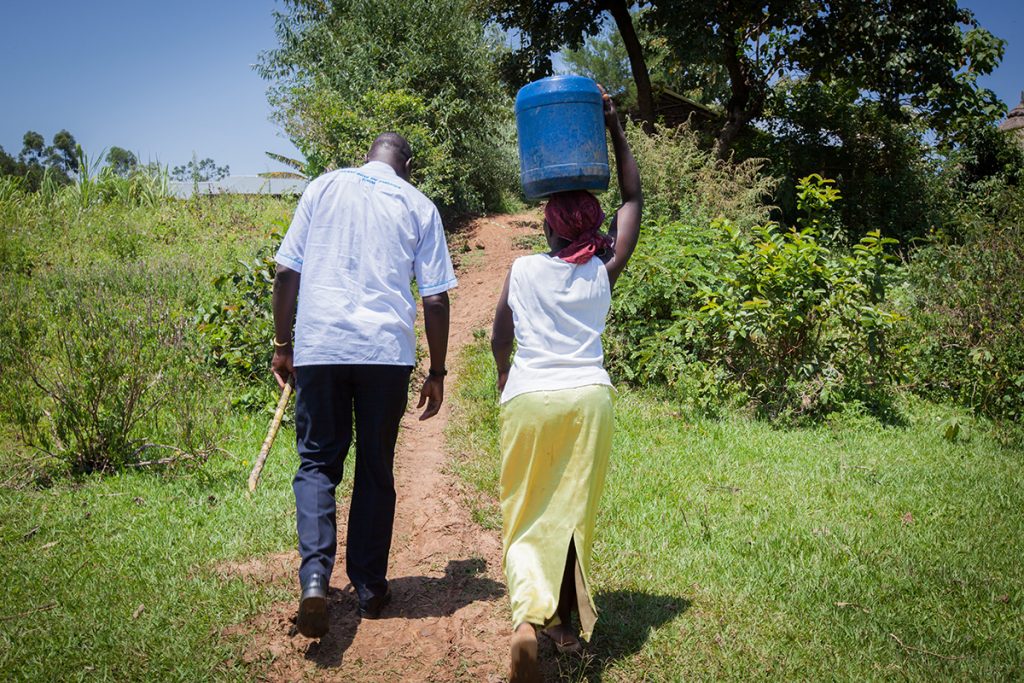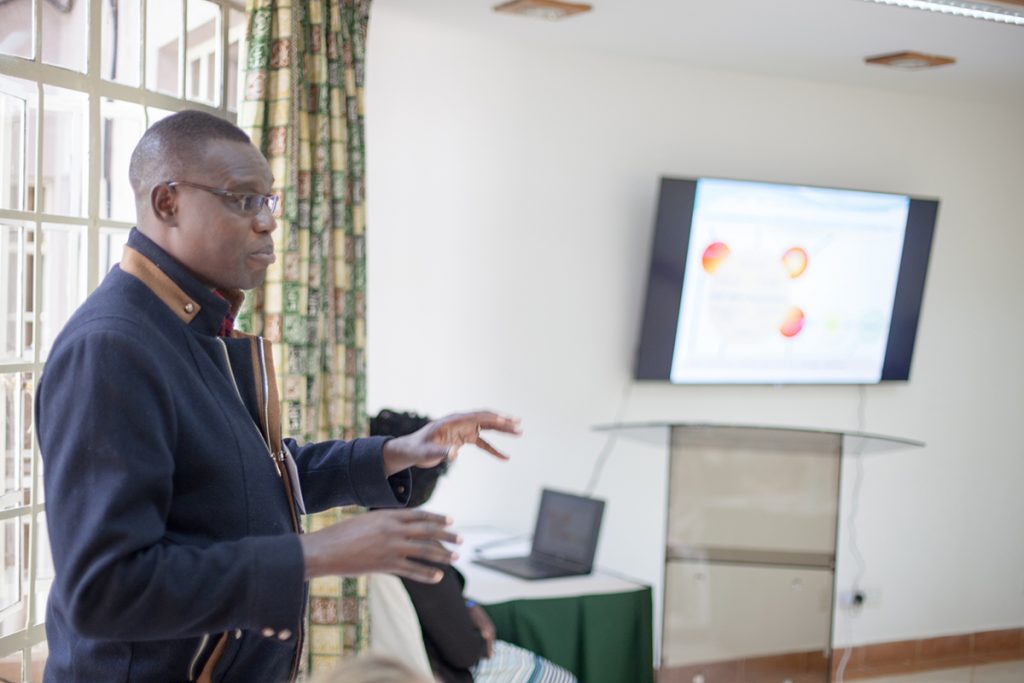What we learn together
The Value of Relationship – Partnership: Part 2 of 5
Part 2 : Redefining Partnership
Our partners are local experts, artisans, and development professionals organized as recognized in-country NGOs. Together we determine the most reliable water solution — whether it is a dam in southeastern Kenya, a borehole in Uganda, or rainwater tank for a school in western Kenya. When they leverage their deep knowledge of each community and elevate their seat and voice at the table, nothing is imposed.

Recent all partner conference in Kenya.
We carefully come alongside partners who share our commitment to long-term relationships and commitments to the people being served — and then we support the building of relationships, focused on developing reliable water, sanitation and hygiene (WaSH) programs at scale.
For example, our team in Sierra Leone requires that staff live in the communities where they work. In Southeast Kenya, our local colleagues work with local groups established years before a water point is installed. These community groups, supported by local experts, are the main actors in building dams and wells that turn dry parts of Kenya into areas with reliable water.

Local teams regularly work in the community to understand the true need.
True partnership runs in multiple directions. Most current models of “partnering,” with so-called local water experts, are merely a grantee-grantor arrangement with only near-term, grantor led goals. For The Water Project, active interdependence defines our relationships and is what makes them unique. Knowledge sharing, management capacity, monetary investment, strategic planning, program evaluation, problem resolution, and impact assessments all happen collaboratively in an effort to discover the truth about providing reliable water at scale.

Our in-country experts lead strategic planning.
We all learn by listening and sharing gathered knowledge across all our teams. Competition for grant funds, often counterproductive in truth-seeking, is eliminated as each group is welcomed to the process of strategic goal setting across our shared programs. Each group needs the other to best serve communities in need of reliable water.
Partnerships are the ends, not just the means to safe, reliable water.
<< Back to Part 1 | Continue Reading – Part 3: Accountability and Transparency >>
Home More Like This
Tweet